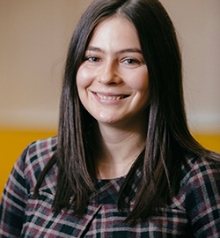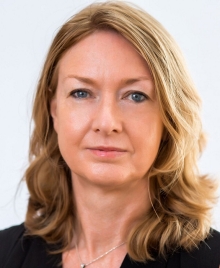
Key information
UCAS code:
N500
Accreditation:
This course is Accredited
Typical offer:
112-120 UCAS points from 3 A levels, or equivalent
Showing content for section Overview
Overview
Marketing is about so much more than advertising. This BA (Hons) Marketing degree explores the wider role that marketing plays in business and how it can shape the behaviours of consumers and society.
On this CIM accredited course you’ll discover what makes a brand, how to develop new product concepts, and why understanding consumers is so important. You’ll specialise in topics that interest you by choosing optional modules after your first year, with the chance to study topics such as project management or B2B marketing.
You’ll finish your degree with an in-depth understanding of how marketing can grow an organisation, and with experience working on a range of practical projects to boost your marketing portfolio. You’ll learn to create effective communications, apply your skills and knowledge to real-life scenarios, and work with live clients throughout your studies.
When you graduate you’ll already have experience of industry standard software such as Hubspot and Excel, with opportunities to earn certifications in these softwares as you study.
If you choose to complete an industrial placement year after your second or third year, you’ll have a year of industry experience too.
You’ll enter the job market ready to apply your marketing skills in any sector that interests you — whether you want to work in a specific area of business, for a marketing agency, or as a freelancer.
I chose my course because of the variety of options, a great reputation and a stellar support system.
Course highlights
-
Explore the key foundations of marketing, such as consumer behaviour and brands, and focus on the areas that really interest you in your second and third years
-
Work on live briefs with real clients as part of your assessments
-
Use the same software used in industry
-
Earn additional certifications in areas such as SEO and Google Analytics as part of your degree
-
Network with industry speakers and explore how marketing is used across different sectors
-
Learn from teaching staff who have worked in industry and are actively researching the rapidly changing world of marketing
-
Secure a paid placement year with the support of our dedicated Placement Team
90%
of graduates in work or further study 15 months after this course
(HESA Graduate Outcomes Survey 2018/19)
No. 3
influential business school in the world
Financial Times Teaching Power Rankings 2021
Accreditation
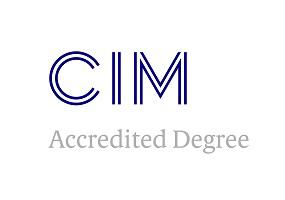
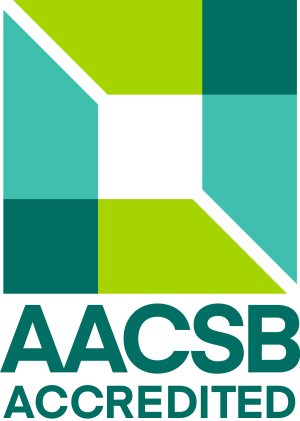
The Chartered Institute of Marketing (CIM) is the leading professional body for marketers worldwide and exists to develop the marketing profession, maintain professional standards and improve the skills of marketing practitioners. University of Portsmouth has joined forces with CIM to give students the opportunity to gain professional qualifications through the CIM Accredited Degree partnership. CIM qualifications are highly sought after by employers, and their content is reflected in our own degrees which ensures we are equipping students with the best opportunities for a successful marketing career.
Business and management studies at the University of Portsmouth is ranked 2nd of the modern universities by research power
Research Excellence Framework (REF) 2021
Contact information
Contact AdmissionsEntry requirements
BA (Hons) Marketing degree entry requirements
Typical offers
- A levels - BBB-BBC
- UCAS points - 112-120 points from 3 A levels, or equivalent (calculate your UCAS points)
- T-levels - Merit
- BTECs (Extended Diplomas) - DDM-DMM
- International Baccalaureate - 29
You may need to have studied specific subjects – find full entry requirements and other qualifications we accept.
English language requirements
- English language proficiency at a minimum of IELTS band 6.0 with no component score below 5.5.
See alternative English language qualifications.
We also accept other standard English tests and qualifications, as long as they meet the minimum requirements of your course.
If you don't meet the English language requirements yet, you can achieve the level you need by successfully completing a pre-sessional English programme before you start your course.
Typical offers
- A levels - BBB-BBC
- UCAS points - 112-120 points from 3 A levels, or equivalent (calculate your UCAS points)
- T-levels - Merit
- BTECs (Extended Diplomas) - DDM-DMM
- International Baccalaureate - 29
You may need to have studied specific subjects or GCSEs - see full entry requirements and other qualifications we accept.
English language requirements
- English language proficiency at a minimum of IELTS band 6.0 with no component score below 5.5.
See alternative English language qualifications.
We also accept other standard English tests and qualifications, as long as they meet the minimum requirements of your course.
If you don't meet the English language requirements yet, you can achieve the level you need by successfully completing a pre-sessional English programme before you start your course.
We look at more than just your grades
While we consider your grades when making an offer, we also carefully look at your circumstances and other factors to assess your potential. These include whether you live and work in the region and your personal and family circumstances which we assess using established data.
Ideal skills and qualities for this course
Students who do well on this course are those who really want to know what it means to 'understand the customer', and who have a curiosity around what makes certain brands so successful.
Experience with creative tools or software is useful but not essential as you'll get all the support you need to develop your skills on the course.
Careers and opportunities
You'll graduate from this course with projects and certificates to demonstrate your competence with tools and you'll have real-world experience to talk about in interviews. That experience might be through a work placement, or through our marketing consultancy project module.
You'll also have an understanding of business and how the marketing function fits into business, which is a skill you'll be able to apply to any sector that interests you.
Previous graduates of this course have secured jobs such as:
- marketing executive
- social media account manager
- advertising planner
- ecommerce trading executive
- international project manager
- customer relationship executive
- field marketing executive
- operations manager: sales and marketing
- recruitment consultant
Previous graduates of this course have gone on to work for companies such as:
- Microsoft
- Sky
- BMW Financial Services
- FatFace
- Quintessentially (luxury lifestyle management)
- Pendragon (automotive)
- Blue Reef Aquarium
- Immediate Media Co. (content and platforms)
- The Bank of England
Ongoing career support – up to 5 years after you graduate
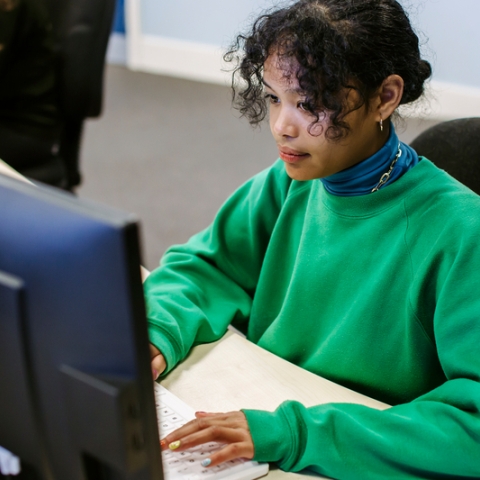
You could also choose to continue your studies at postgraduate level, or set up your own business with help and support from the University.

I learned how to think deeply and critically, which is essential for my job which involves understanding human behaviour and culture and making strategic decisions for brands. It enabled me to build connections in the creative/marketing industry that have led me to where I am today.

What can you do with a Marketing degree??
Read our blog to discover the jobs you can get with a Marketing degree, and the skills you can take into the workplace.
Read the blog
Work placement year
You can boost your employability by taking an optional paid placement after the second or third year of your degree.
Previous students on this course have had placements in organisations such as:
- Warner Bros
- Nissan
- Renault
- Rolls Royce
- Nintendo
- Panasonic
- Bosch
- Golf Breaks
- Gamemode One Inc
Many of our students are offered graduate jobs by their placement employers.

Katarzyna's placement led onto a job she loves:
"My role has included organising the project's data, creating the newsletter, updating the website and posting on social media, as well as organising online events. Recently I supervised the filming of a short, promotional video."
Katarzyna Stachurska graduate from BA Marketing in 2021
The average salary for a 12-month paid placement is £19,800 for students in the Faculty of Business and Law. It could be more or less than this amount depending on your placement. You'll only pay a very small percentage of your tuition fee for this year.
You could also set up your own business during your placement year, or take a voluntary placement.
Ways to enrich your study
Entrepreneurs in Residence Programme (EiR)
We have more than 20 experienced business entrepreneurs on our free EiR programme who can help you develop your business idea.
"I have a business idea, but I was not too sure about it. After this meeting, I felt so encouraged and positive about it! I felt so motivated to pursue my business venture. He gave me real life advice and helped me how to approach my ideas."
Rabab El Habchi Mahir meeting EiR Mark Smith
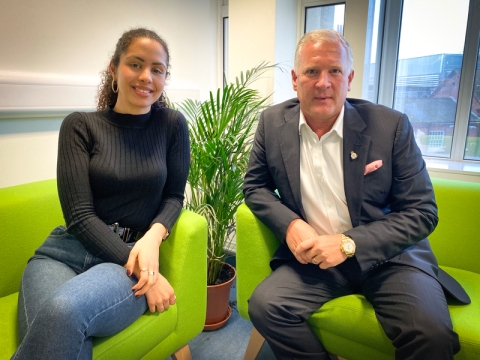
Study abroad year
Between your second and third year you can choose to study abroad at one of our partner universities in Europe, Asia, Australia or North America. All classes are delivered in English and you'll still be able to get both your tuition fee and maintenance loans. You may also qualify for a government travel grant.
"Students that go abroad are more likely to obtain first-class honours [and] more likely to be in graduate employment than their non-mobile peers."
Universities UK International: 'Gone International, Rising Aspirations', 2019

Modules
Each module on this course is worth a certain number of credits.
In each year, you need to study modules worth a total of 120 credits. For example, four modules worth 20 credits and one module worth 40 credits.
What you'll study
Core modules
You’ll explore topics ranging from financial principles and reporting standards through to budgeting, costing and analytical problem-solving.
You'll gain an understanding of accounting’s indispensable role in informing strategy and operations for organisations, and finish this module with the theoretical knowledge and practical skills to guide organisations towards financial control.
Students delve into the realms of debate and critical thinking in the context of marketing and International Business studies.
In this module, students engage in a collaborative virtual project with peers from partnering international universities. This experience allows students to enhance their virtual collaboration skills, cultivate cross-cultural awareness and hone their interpersonal communication abilities — essential for their future in business.
The module tutors act as personal tutors, supporting students in their progress and welfare requirements. The skills and knowledge gained in this module directly complement other core modules studied in the first year along with fostering important employability and career management expertise.
A weekly lecture will be supported be a weekly group seminar which are designed to enable students to explore concepts raised in the lectures and have opportunity to apply them both individually and in small groups, through a variety of real world scenarios and case studies.
Core modules
Through a series of practical assessment activities, students will gain hands-on experience in creating and implementing digital marketing strategies tailored to engage audiences online and using various social media platforms.
This module offers a strong practical orientation and enables students to develop essential digital marketing skills while building a portfolio of evidence that showcases their ability to thrive in the workplace.
Optional modules
By exploring world class research and real entrepreneurial experience, you'll gain an understanding of essential issues in entrepreneurship and small business management.
You'll work with your fellow students in entrepreneurial teams, developing innovative business ideas, and using the experience to build a range of entrepreneurial and employability skills.
Explore event theories and planning models as you develop theoretical knowledge and hands-on skills for successfully planning, marketing and executing events.
Through group projects that mirror the way you'll work in industry, you’ll explore a range of event types and tailor your marketing plans to suit their needs — whether for business, cultural, or sporting events.
Gain hands on experience putting theory into practice, and using product management tools and frameworks to develop your own creative new product idea.
With assessments centered on analysing real organisations, you’ll evaluate decisions related to resourcing, positioning and launch - leaving you equipped to prepare watertight business cases for investment.
Upon completion, you'll have the strategic vision and product innovation skills to help brands create a portfolio of profitable new products.
Core modules
These key skills include:
- Research and critical analysis skills
- A range of communication skills (written & oral)
- Problem solving (quantitative and qualitative) skills
The module addresses UoP Hallmarks 1, 2, 3, 4 and 8.
Optional modules
Exploring the models and best practices related to ideation, development and launch, you’ll understand the processes that bring ideas to market.
Analysing factors from sustainability to globalisation, you’ll tackle the contemporary issues impacting development in the modern landscape. This module will equip you with understanding to give you a cutting edge in the jobs market.
With assessments focused on addressing real-world cases, you'll boost your strategic skills to manage initiatives smoothly from vision to rollout, leaving you prepared to champion disruption responsibly across industries ahead.
Build on your prior knowledge by exploring how macro and micro cultural forces shape workplace behaviour, competence needs and communication approaches.
You'll use both creativity and critical thinking to actively apply perspectives from sociology and psychology to real-world case studies. From this, you'll learn to identify nuances across diverse settings and to make effective workplace recommendations.
By the end of this module you’ll have essential skills in cross-cultural analysis that are crucial for thriving in our increasingly interconnected world of business.
After your second or third year, you can do an optional work placement year to get valuable longer-term work experience in the industry.
We’ll help you secure a work placement that fits your aspirations, and you’ll get mentoring and support throughout your year of work.
When you graduate after successfully completing a placement year, your degree transcript and degree certificate will state that your degree is `in the sandwich mode'.
Changes to course content
We use the best and most current research and professional practice alongside feedback from our students to make sure course content is relevant to your future career or further studies.
Therefore, some course content may change over time to reflect changes in the discipline or industry. If a module doesn't run, we'll let you know as soon as possible and help you choose an alternative module.
Alternative marketing courses
Not quite sure this course is right for you? Take a look at our other marketing courses to compare your options.
If you know you want to focus on the digital aspects of marketing and get very hands-on with creating content take a look at our BA (Hons) Digital Marketing degree.
Your facilities
Technology Enhanced Active Learning (TEAL) room
Our technology enhanced active learning space promotes social learning.
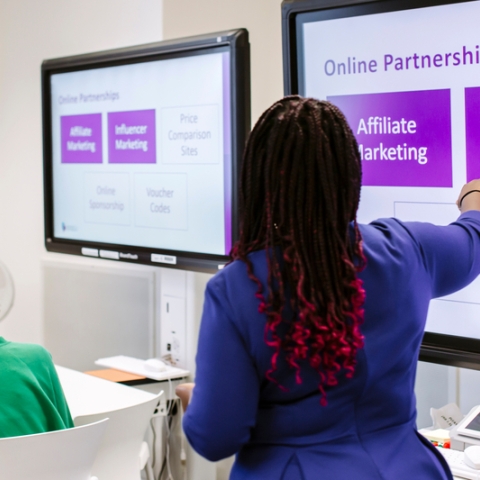
Business Simulation Suite
Experience the boardroom in our replica business suite.

Teaching
Around 20% of your timetabled teaching will be online.
The majority of your learning will be face-to-face and will include:
- lectures
- workshops
- seminars
- ICT sessions
We pride ourselves on the academic support we offer our students. You'll have a personal tutor, student engagement officers and study support staff to help you throughout your studies.
The lecturers are all very friendly and open. They make it so much easier to communicate with and make the course more enjoyable.
Assessment
Your assessment will depend on which modules you take. Assessment methods are likely to include:
- projects
- portfolio work
- live client work
- presentations
- group work
- essays
- exams
- multiple-choice tests
How you'll spend your time
One of the main differences between school or college and university is how much control you have over your learning.
We use a blended learning approach to teaching, which means you’ll take part in both face-to-face and online activities during your studies. As well as attending your timetabled classes you'll study independently in your free time, supported by staff and our virtual learning environment, Moodle.
A typical week
We recommend you spend at least 35 hours a week studying for this degree.
Your total study time will depend on the modules that you take, but in your first year this is what your week may look like:
- timetabled teaching activities (lectures, seminars, tutorials, classes and workshops) = about 13 hours a week
- independent study (research, reading, coursework and project work, alone or in a group) = about 22 hours a week
You'll probably do more independent study and have less scheduled teaching in years 2 and 3, but this depends on which modules you choose.
Term dates
The academic year runs from September to June. There are breaks at Christmas and Easter.
Supporting you
The amount of timetabled teaching you'll get on your degree might be less than what you're used to at school or college, but you'll also get support via video, phone and face-to-face from teaching and support staff to enhance your learning experience and help you succeed. You can build your personalised network of support from the following people and services:
Types of support
Your personal tutor helps you make the transition to independent study and gives you academic and personal support throughout your time at university.
As well as regular scheduled meetings with your personal tutor, they're also available at set times during the week if you want to chat with them about anything that can't wait until your next meeting.
In addition to the support you get from your personal tutor, you'll also have access to our student engagement officers. They can give you confidential, impartial advice on anything to do with your studies and personal wellbeing, and refer you to specialist support services if you need extra help or support.
You'll have help from a team of study support tutors. Based within the Faculty of Business and Law, these tutors are familiar with the specific requirements your assignments and work closely with faculty academics. This means they can give you focused support with the specific study skills you need to be successful on your course. They're available face-to-face, by phone, email, and by video call.
They can help with:
- Academic writing (for example, essays, reports, dissertations, projects and literature reviews)
- Reflective writing skills
- Critical thinking skills
- Delivering presentations (including observing and filming presentations)
- Understanding and using assignment feedback
- Managing your time and workload
- Revision and exam techniques
If you're a mature student, specialist support to help you return to learning is available.
As well as support from faculty staff and your personal tutor, you can use the University's Academic Skills Unit (ASK).
ASK provides one-to-one support in areas such as:
- academic writing
- note taking
- time management
- critical thinking
- presentation skills
- referencing
- working in groups
- revision, memory and exam techniques
Library staff are available in person or by email, phone, or online chat to help you make the most of the University's library resources. You can also request one-to-one appointments and get support from librarians who specialise in business and law.
The library is open 24 hours a day, every day, in term time.
Our online Learning Well mini-course will help you plan for managing the challenges of learning and student life, so you can fulfil your potential and have a great student experience.
You can get personal, emotional and mental health support from our Student Wellbeing Service, in person and online. This includes 1–2–1 support as well as courses and workshops that help you better manage stress, anxiety or depression.
If you require extra support because of a disability or additional learning need our specialist team can help you.
They'll help you to
- discuss and agree on reasonable adjustments
- liaise with other University services and facilities, such as the library
- access specialist study skills and strategies tutors, and assistive technology tutors, on a 1-to-1 basis or in groups
- liaise with external services
If English isn't your first language, you can do one of our English language courses to improve your written and spoken English language skills before starting your degree. Once you're here, you can take part in our free In-Sessional English (ISE) programme to improve your English further.
Course costs and funding
Tuition fees
- UK/Channel Islands and Isle of Man students – £9,250 per year (may be subject to annual increase)
- EU students – £9,250 a year (including Transition Scholarship – may be subject to annual increase)
- International students – £17,200 per year (subject to annual increase)
- UK/Channel Islands and Isle of Man students – £9,250 per year (may be subject to annual increase)
- EU students – £9,250 a year (including Transition Scholarship – may be subject to annual increase)
- International students – £17,200 per year (subject to annual increase)
Funding your studies
Find out how to fund your studies, including the scholarships and bursaries you could get. You can also find more about tuition fees and living costs, including what your tuition fees cover.
Applying from outside the UK? Find out about funding options for international students.
Additional course costs
These course-related costs aren’t included in the tuition fees. So you’ll need to budget for them when you plan your spending.
Additional course costs
Our accommodation section shows your accommodation options and highlights how much it costs to live in Portsmouth.
You’ll study up to 6 modules a year. You may have to read several recommended books or textbooks for each module.
You can borrow most of these from the Library. If you buy these, they may cost up to £60 each.
We recommend that you budget £75 a year for photocopying, memory sticks, DVDs and CDs, printing charges, binding and specialist printing.
If your final year includes a major project, there could be cost for transport or accommodation related to your research activities. The amount will depend on the project you choose.
If you take a placement year or study abroad year, tuition fees for that year are as follows:
- UK/Channel Islands and Isle of Man students – £1,385 a year (may be subject to annual increase)
- EU students – £1,385 a year, including Transition Scholarship (may be subject to annual increase)
- International students – £2,875 a year (subject to annual increase)
Apply
How to apply
To start this course in 2024, apply through UCAS. You'll need:
- the UCAS course code – N500
- our institution code – P80
If you'd prefer to apply directly, use our online application form.
You can also sign up to an Open Day to:
- Tour our campus, facilities and halls of residence
- Speak with lecturers and chat with our students
- Get information about where to live, how to fund your studies and which clubs and societies to join
If you're new to the application process, read our guide on applying for an undergraduate course.
To start this course in 2025, apply through UCAS. You'll need:
- the UCAS course code – N500
- our institution code – P80
If you'd prefer to apply directly, use our online application form.
You can also sign up to an Open Day to:
- Tour our campus, facilities and halls of residence
- Speak with lecturers and chat with our students
- Get information about where to live, how to fund your studies and which clubs and societies to join
If you're new to the application process, read our guide on applying for an undergraduate course.
Applying from outside the UK
As an international student you'll apply using the same process as UK students, but you’ll need to consider a few extra things.
You can get an agent to help with your application. Check your country page for details of agents in your region.
Find out what additional information you need in our international students section.
If you don't meet the English language requirements for this course yet, you can achieve the level you need by successfully completing a pre-sessional English programme before you start your course.
Admissions terms and conditions
When you accept an offer to study at the University of Portsmouth, you also agree to abide by our Student Contract (which includes the University's relevant policies, rules and regulations). You should read and consider these before you apply.


